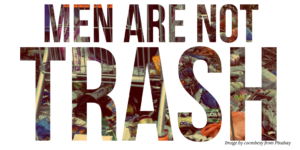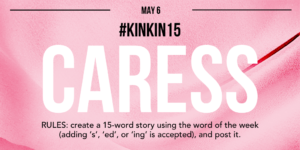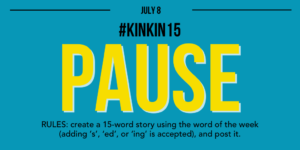This writing is now available as a podcast episode!
So, in the first week of January, I holed up and wrote.
68 chapters, about 38,000 words. All about FLR, FemDom, and Women In Charge relationships, also known as “the book for March” to my team.
It’s part of my 12 books in 12 months in 2020 goal, which I’ve been crushing.
I’m a tad bonkers, I know.
LOL!
Anyway, one of the ways I do this is I create a book based on questions. Many are questions I’ve been asked a lot over the years. Some are newer questions solicited for the project (you may have seen some of these on my feed).
One of the newer questions for this book was:
What Are the Pitfalls of FemDom in Marriage?
And, as I was writing the chapter, I realized that the very same pitfalls apply to all power exchange relationships, and I wanted to share them with you.
My knee-jerk reaction was to say, “NONE!” and be done with that chapter. Believe me, every once in a while I CAN answer a question quickly, like in a couple of paragraphs, and I celebrate, because that reduces my writing time that day (I often give myself a goal of X number of chapters).
Thing is that’s not entirely true. There are potential pitfalls to ANY relationship choice, and if I’m going to write this book and answer questions, I needed to really think things through.
And when I did, well, here it is (generalized to all power exchange relationships)…
Just like any other relationship style, power exchange dynamics have their “gotchas” in marriage or any other long-term arrangement.
Let’s take a look at those.
Absolute Power Corrupts Absolutely
Power can go to your head. Of course it can.
And the challenge is to avoid using that power to reinforce the idea that you are a better or more deserving person because you have that power.
This could potentially lead to thoughts or behaviors of dehumanization from the dominant toward the submissive.
It’s an easy habit to fall into, and it becomes a situation where power is used to railroad the submissive partner, instead of compassion used to make sure that BOTH partners are served by a mutual relationship dynamic.
Manipulation
And with power comes the ability to manipulate.
Manipulation is not inherently evil. It can be used for good or bad things.
As a behavior modification enthusiast myself, I love using manipulation techniques to improve my own life and that of my Pet.
It’s easy to see the appeal, though, to use power to convince someone that they want something that you want, or that their desires are just a passing fancy, and not as important as yours.
And that crosses the line, because that’s not consensual.
Bandaid
Of course, any new relationship style—power exchange, ethical non-monogamy, parenthood—can be used as a quick fix or patch to hide huge problems in the relationship’s foundation.
The newness, the excitement, the tbondingogetherness of figuring it out…
It FEELS like it’s fixing things.
When it’s not.
Any power exchange dynamic is best when the original relationship foundation is whole and stable.
Co-Dependency
For those with deeply submissive natures, it’s incredibly easy to lose themselves in their roles, and to take on the wants, needs, and preferences of their dominant.
To the point where they lose who they are as an individual, and become a mere hanger-on to another’s life.
While some people aim for just this thing (and I’m not going to say that’s wrong—just worth treading very carefully), for the majority of people it is not a conscious and consented-to process.
And because it happens gradually over time, it’s hard to find and root out, if it’s not watched for from the beginning.
Abuse
Of course.
Just because you’re kinky doesn’t mean you’re not in an abusive relationship.
I discussed the differences in a recent writing, BDSM Vs. Abuse.
I’d suggest that whenever there might be a question in your mind about your own or another’s relationship, that you read through that (and any other similar references) and really examine what’s going on.
All That Said…
Pretty much any/all of these things happen in every type of relationship.
The power exchange does encourage some of them in ways that other more equal dynamics might not, but I think we can all agree that even without power exchange, we’ve seen these things happen to friends and loved ones, perhaps even ourselves.
What are YOUR thoughts?
What did I miss? Have you seen any of these potential pitfalls in your own relationships or others?
You can leave a voicemail with your thoughts! We may use your comments in a podcast, if you do. *smiles*
Image by 【微博/微信】愚木混株 【Instagram】cdd20 from Pixabay










